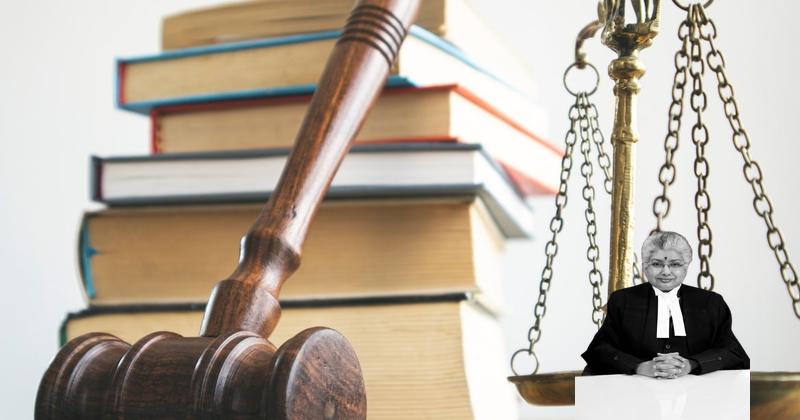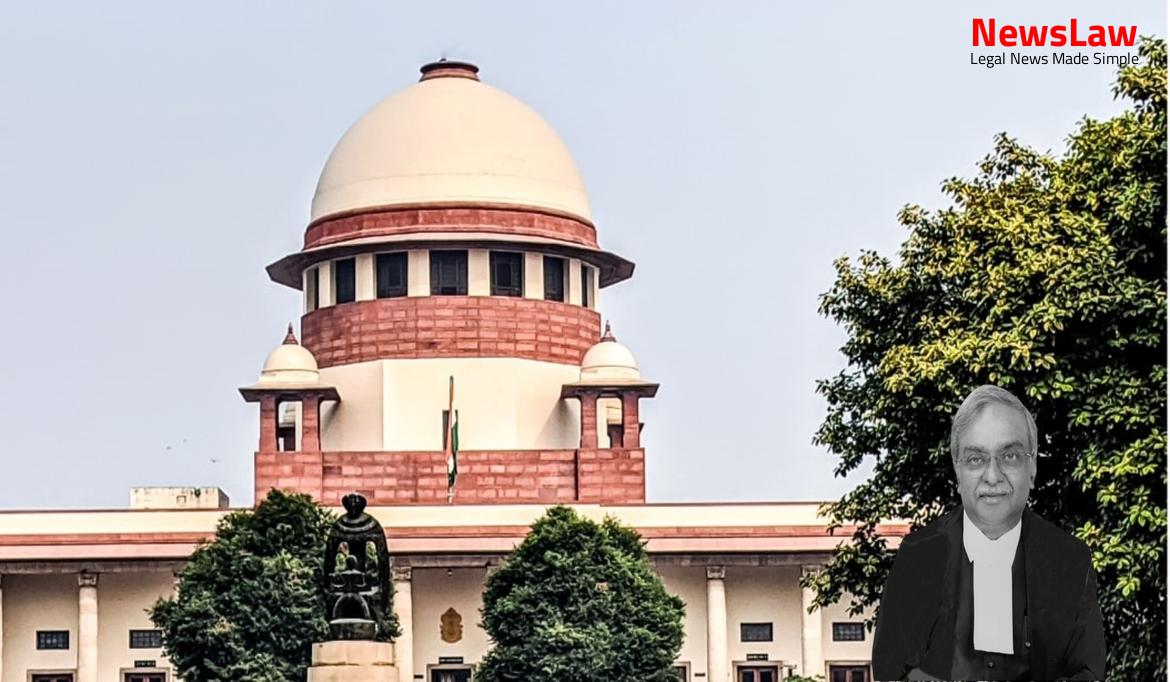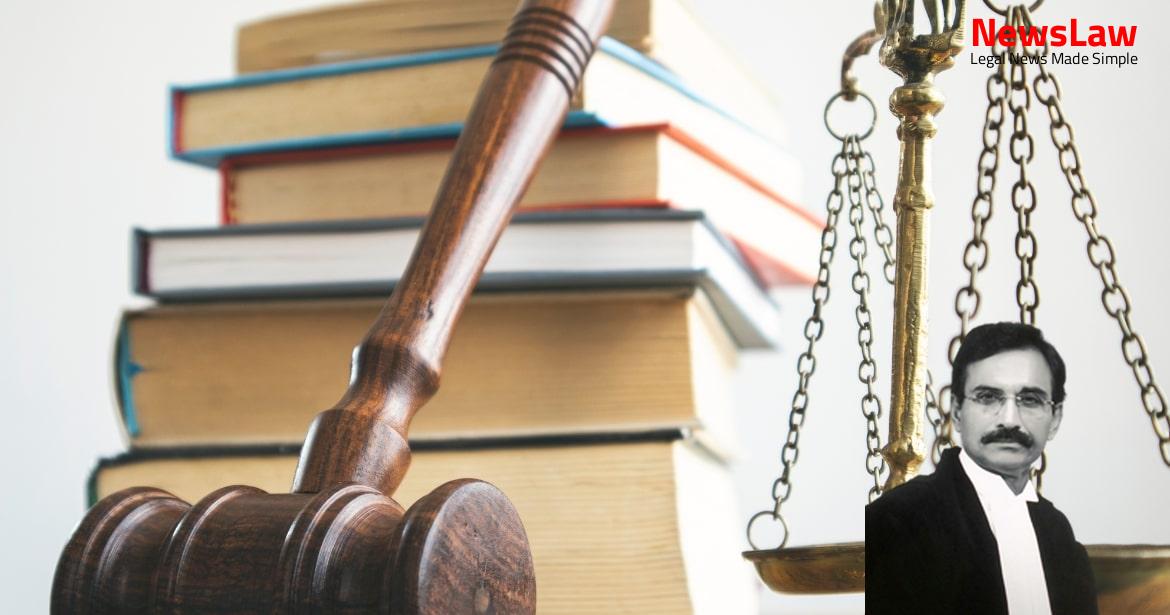The present appeal is directed against the Final Judgment and Order dated 25.04.2022 (hereinafter referred to as the “Impugned Judgment”) in Civil Revision Petition (NPD) (MD)
No 271 of 2022 (hereinafter referred to as the “Civil Revision Petition”), passed by a learned Single Bench of the Madras High Court Bench at Madurai (hereinafter referred to as the “High Court”). No 5 of 2015 before the Revenue Court, seeking eviction of the appellants as they had failed to deliver the 3112 bags of paddy, or the 4 amount equivalent, towards lease rent, which was allowed vide Order dated 03.12.2021, on the ground that the appellants did not deposit the lease rent amount within two months. We deem it apposite to extract the short order hereunder in toto : “ To set aside the order the order passed by the Special Sub Collector, Revenue Court, Madurai in I.A.No.15 of 2021 in T.C.T.P.No.5 of 2015 dated 03.12.2021, the revision petitioners have filed this Civil Revision Petition before this Court. So, the revision petitioners have to pay the lease amount within trhee months from 10.10.2020, but they had deposited lease amopunt only on 18.02.2021, ie., beyond the time limit. Learned counsel for the appellants submitted that they had received the Order dated 04.02.2019 only on 10.10.2020 and had sent Legal Notice to the respondent No.1 on 06.11.2020 i.e., well within two months from the date of receipt of the Order dated 04.02.2019, (a) expressing their readiness and 6 willingness to pay the lease rent of 3112 bags of paddy, and (b) asking them to come with all the legal heirs of the original lessor and collect the lease rent. Thus, the learned counsel submitted that the respondents having failed to come and accept the lease rent arrears, the same was deposited in court on 18.02.2021 for Rs.28,563/- in the State Bank of India Treasury of the Special Deputy Collector, Revenue Court, and a Memo dated 22.02.2021 was filed 7 by the appellants, with the receipt of such deposit before the said Revenue Court. It was submitted that Section 3 of the Tamil Nadu Cultivating Tenants Protection Act, 1955 (hereinafter referred to as the “Act”) does not provide for eviction after the deposit of the due amount(s) and in the present case, the delay, not being inordinate, such order(s) ought not to have been passed. Per contra, learned counsel for the respondent no.1 submitted that even as per the contention of the appellants themselves, the copy of the Order dated 04.02.2019 was received by them on 10.10.2020 and thus, they had to comply with the same latest by 09.12.2020 i.e., within 2 months, which, admittedly, had not been done. Thus, this Court, ordinarily, would have rejected even considering the same, but nonetheless, in the interest of justice, has surveyed both the written submissions and the judgments submitted, more so for the reason that in view of the order eventually being passed by us, no prejudice is going to be caused to 11 the other side due to such non-supply. To begin with, the Order dated 04.02.2019, passed by the Revenue Court, was never assailed by the appellants herein. The appellants could not have called upon the respondents via a Legal Notice to come and collect the rent as, simply stated, they were obliged in law, having not assailed the Order dated 04.02.2019, to pay and, if for any reason the respondent no.1, either due to non-availability or resistance/refusal to receive/accept the same, the Order dated 04.02.2019 had clearly provided that either 3112 bags of paddy or the amount equivalent thereto could easily have been deposited before the Revenue Court; as ultimately is stated to have been done by the appellants, though belatedly, on 18.02.2021.
(2) Subject to the next succeeding sub-section, sub-section (1) shall not apply to a cultivating tenant- (a) who, in the areas where the Tanjore Tenants and Pannaiyal Protection Act, 1952 (Tamil Nadu Act XIV of 1952), was in force immediately before the dale of coming into force of the Tamil Nadu Cultivating Tenants Protection (Amendment) Act, 1956, if in arrear at the commencement of this Act, with respect to the rent payable to the landlord does not pay such rent within six weeks after such commencement or who in respect of rent payable to the landlord after the commencement of this Act, does not pay such rent within a month after such rent becomes due; or (aa) who, in the other areas of the State of Tamil Nadu, if in arrear at the commencement of this Act, with respect to the rent payable to the landlord and accrued due subsequent to the 31st March, 1954, does not pay such rent within a month alter such commencement, or who in respect of rent payable to the landlord after such commencement, does not pay such rent within a month after such rent becomes due; or] (b) who has done any act or has been guilty of any – In relation to the added territories, clause (aa) of this subsection shall have effect as if the following clause had been substituted, namely:- “(aa) who, if in arrear on the date on which the Tamil Nadu Cultivating Tenants Protection and Payment of Fair Rent (Extension to Added Territories) Act, 1963, is first published in the [Fort St. In relation to Kanyakumari district, clauses (aa) of this sub-section shall have effect as if the following clause had been substituted, namely:- (aa) who, if in arrear on the dale on which the Tamil Nadu Cultivating Tenants 15 Protection and Payment of Fair Rent (Extension to Kanyakumari District) Act, 1972, is first published in the Tamil Nadu Government Gazette with respect to the rent payable to the landlord and accrued due during a period of one moot Is before such date does not pay such rent within a month after such date, or who in respect of rent payable to the landlord after such date, does not pay such rent within a month after such rent becomes due; or] (3)(a) A cultivating tenant may deposit in Court the rent or, if the rent be payable in kind, its market value on the date of deposit, to the account of the landlord- (i) in the case of rent accrued due subsequent to the 31st March 1954, within a month after the commencement of this Act; (ii) in the case of rent accrued due after the commencement of this Act, within a month after the date on which the rent accrued due; (b) If the Court adjudges that no further sum is due, or if the cultivating tenant deposits within the time allowed such further sum as is ordered by the Court, the cultivating tenant shall be deemed to have paid the rent within the period specified in 16 the last foregoing sub-section.
– In relation to the Kanyakumari district, the expression rent accrued due subject to the 31st March 1954′ occurring in sub-clause.(i) of clause (a) of this of this sub-section shall be construed as referring to rent accrued due during a period of one month before the date on which the [Tamil Nadu] Cultivating Tenants, Protection and Payment of Fair Rent (Extension to Kanyakumari district) Act, 1972, is first published in the Tamil Nadu Government Gazette. (b)
On receipt of such application, the Revenue Divisional Officer shall, alter giving a reasonable opportunity to the landlord and the cultivating tenant to make their representations, hold a summary enquiry into the matter and pass an order either allowing the application or dismissing it and in a case falling under clause (a) or clause (aa) of sub-section (2) in which the tenant had not availed oi the provisions contained in sub-section (3), the Revenue Divisional Officer may allow the cultivating tenant such time as he considers just and reasonable having regard to the relative circumstances of the landlord and the cultivating tenant for depositing the arrears of rent payable under this Act inclusive of such costs as he may direct.
Also Read: https://newslaw.in/case-type/civil/application-of-code-of-civil-procedure-in-small-causes-court/
Provided that the Revenue Divisional Officer shall not direct the cultivating tenant to deposit such arrears of rent as have become Time barred under any law of limitation for the time being in force. (2) Nothing in sub-section (1) shall be deemed to entitle any such cultivating tenant to restoration of possession- (i) if, on the day this Act comes into force, he is in possession, either as owner or as tenant or as both, of land exceeding the extent specified in the Explanation below or if he has been assessed to any sales-tax, profession-tax or income-tax under the respective laws relating to the levy of such taxes during 1953-54 or 1954-55; or (ii) if the landlord, after evicting such cultivating tenant from the land [has been carrying on personal cultivation on the land], provided as follows: (a) the total extent of land held by such landlord inclusive of the land, if any, held by him as tenant does not exceed the extent specified in the Explanation below; and (b) the landlord has not been assessed to any sales tax, profession-tax or income-tax under the respective laws relating to the levy of such taxes during 1953-54 or 1954-55; or (iii) if subsequent to the 1st December, 1953, the landlord has bona fide admitted some other cultivating tenant to the possession of land and such other tenant has cultivated the land before the commencement of
(4) On receipt of an application under sub- section (3), the Revenue Divisional Officer shall, after giving a reasonable opportunity to the landlord and the cultivating tenant, if any, in possession of the land, to make their representations, hold a summary inquiry into the matter and pass an order either allowing the application, or dismissing it the Revenue Divisional Officer may impose such conditions as he may consider just and equitable including in regard to- (i) the payment by the applicant of any arrear of rent already due from him to the landlord, but not exceeding in amount one year’s rent, and (ii) the reimbursement by the applicant of the landlord or the other cultivating tenant in respect of the expenses incurred or the labour done by him during the period when the applicant was not in possession, on any crop which has not been harvested, if an agreement is not 20 reached between the parties as regards is not reached between the parties as regards the rates and manner of such reimbursement. (5) Any cultivating tenant who after the commencement of this Act has been evicted except under the provisions of sub-section (4) of section 3 shall be entitled to apply to the Revenue Divisional Officer within two months from the dale of such eviction or within two months from the date of coming into force of the Tamil Nadu Cultivating Tenants Protection ( Amendment) Act, 1956 (Tamil Nadu Act of 1956) for the restoration to him of the possession of the lands from which he was evicted and to hold them with all the rights and subject to all the liabilities of a cultivating tenant. – Nothing in sub-section (1), (2) and (3) shall apply to the Kanyakumari District.” 21 23.
Notably, the challenge by filing the Civil Revision Petition was confined to only the Order of eviction dated 03.12.2021 and not against the original Order i.e., the Revenue Court’s Order dated 04.02.2019, wherein it was categorically held that the appellants are cultivating tenants and the respondents are landlords and which directed for their eviction in the event of failure to pay the lease rent within two months. In fact, in Paragraph No 4, it has been noted that Section 3(2) of the Act deals with exceptional circumstances, such as default in payment of rent in which the statutory protection from eviction of the tenant has been lifted. In any event, in the orders, starting from (2020) 19 SCC 10 and till (2022) 2 SCC 117 ( supra ) this Court was not extending, by way of overarching and/or omnibus directions, time to comply with and/or obey judicial/court orders. When this Court passed the above order for extending the limitation for filing petitions/ applications/ suits/ appeals /all other proceedings, the order was for the benefit of those who have to take remedy, whose remedy may be barred by time because they were unable to come physically to file such proceedings. Another aspect this Court would not lose sight of is the fact that the Act confers a privilege on the cultivating tenant vis-a-vis the landlord, by which the cultivating tenant is protected from eviction by the landlord. As far as the width and amplitude of powers of the High Court under Article 227 of the Constitution is concerned, we need only take note, in praesenti, Estralla Rubber v Dass Estate (P) Ltd. The High Court is not vested with any unlimited prerogative to correct all kinds of hardship or wrong decisions made within the limits of the jurisdiction of the subordinate courts or tribunals. Ram Tahel Ramnand [(1972) 1
SCC 898 :
Also Read: https://newslaw.in/case-type/criminal/bail-application-decision-co-accuseds-surrender-not-relevant/
AIR 1972 SC 1598] in AIR para 12 has stated that the power under Article 227 of the Constitution is intended to be used sparingly and only in appropriate cases, for the purpose of keeping the subordinate courts and tribunals within the bounds of their authority and, not for correcting mere errors. Tarte [(1975) 1 SCC 858 : AIR 1975 SC 1297] has observed that the power of superintendence under Article 227 cannot be invoked to correct an error of fact which only a superior court can do in exercise of its statutory power as a court of appeal and that the High Court in exercising its jurisdiction under Article 227 cannot convert itself into a court of appeal when the legislature has not conferred a right of appeal.
Judged by these pronounced principles, the High Court clearly exceeded its jurisdiction under Article 227 in passing the impugned order. ” Although the Impugned Judgment is a short one, for the additional reasons afore-enumerated, and keeping in view the principles enunciated in the 30 preceding paragraphs, we do not deem it appropriate to tinker therewith. [ KRISHNA MURARI ]…………………….,J.
Case Title: K. CHINNAMMAL (DIED) THR. LRS. Vs. L.R. EKNATH (2023 INSC 518)
Case Number: C.A. No.-003626-003626 / 2023



